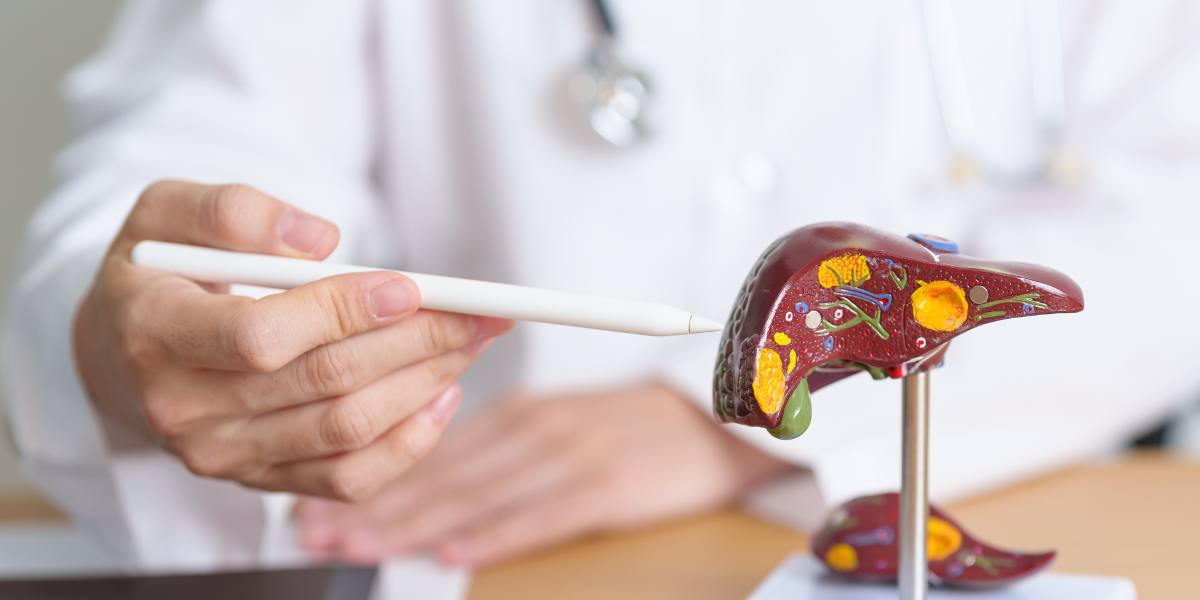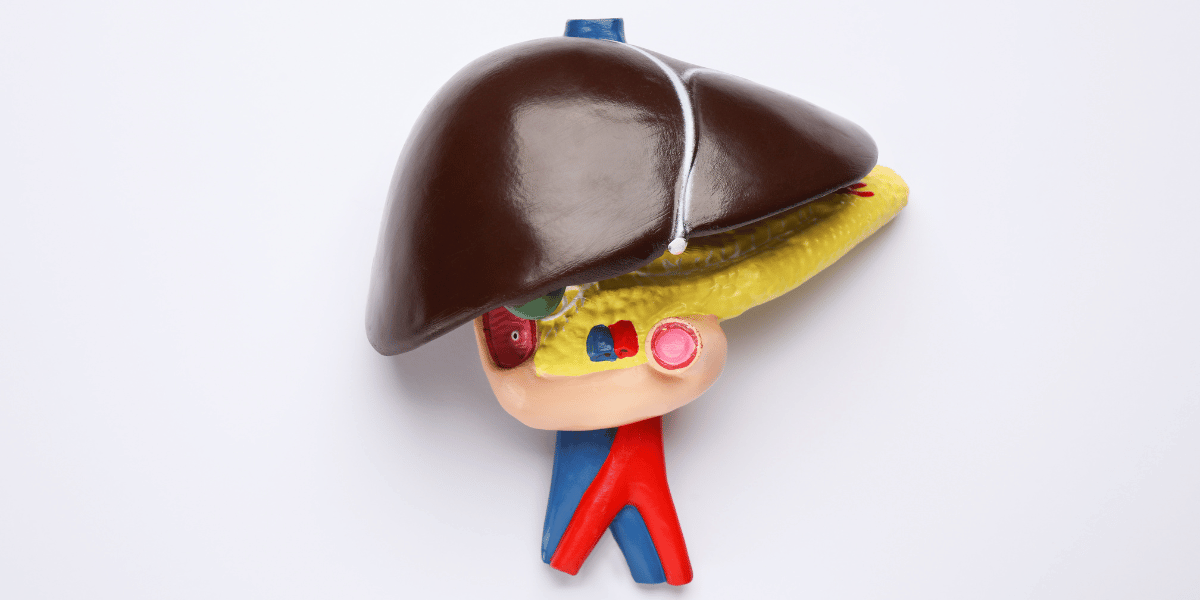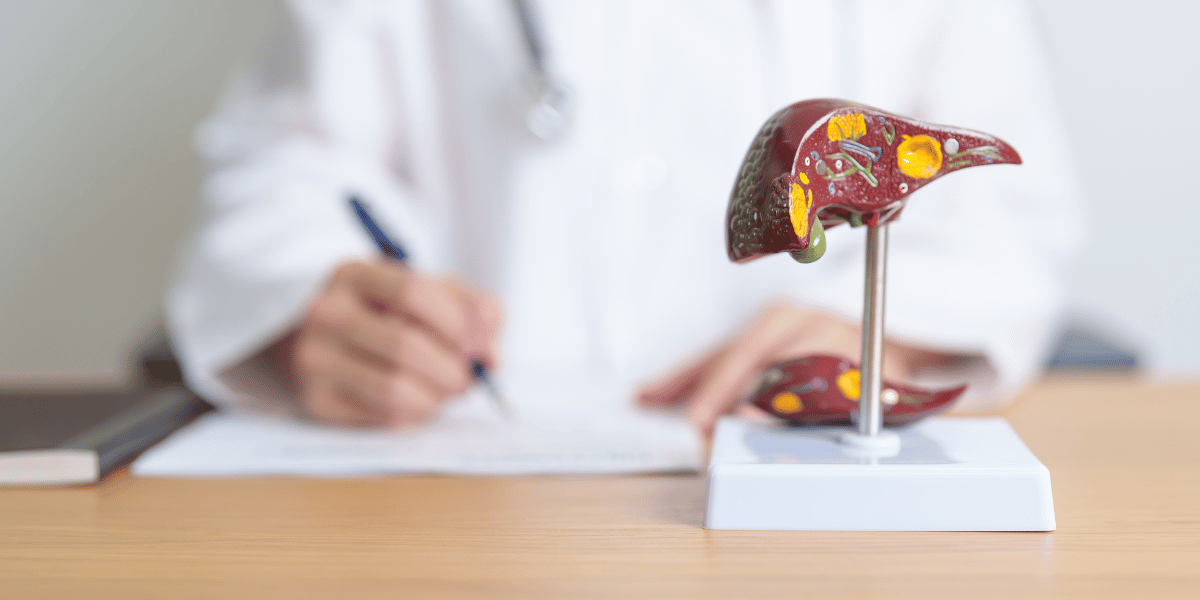Improving Liver Function: The 4 Untold Secrets
Improving liver function is critical to overall health, fat loss, weight loss, cognitive function and many other bodily functions. Here are 4...
.png?width=70&height=70&name=Stark_LogoMark%20(1).png)
3 min read
 Stark
:
May 13, 2024 10:06:00 AM
Stark
:
May 13, 2024 10:06:00 AM

The liver is a marvel of nature, a high performer and a true warrior in your body. Its undervalued worth is immense - for a price indicator, consider the daunting average cost of $577,100 for a liver transplant in the US. There's no denying that encompassing a holistic journey to liver health is an investment worth making. Here is your guide through a few crucial practices for maintaining liver health and promoting effective liver function.
First, you must understand that the liver is no ordinary organ. It's a multidimensional powerhouse, operating various essential activities across your body. Among its impressive responsibilities, it oversees the distribution and storage of glycogen, triglycerides, and amino acids. It also plays a pivotal role in forming cholesterol and transporting lipoproteins and triglycerides to target tissues, sustaining cellular functions. But one of its most heroic roles is detoxification.
Undeniably, your liver is your body's champion in the arena of detox. It courageously battles against all the toxins you consume, breathe in, absorb, or introduce into your body, transforming them into less harmful substances and readying them for excretion. From food and herbal toxins to prescription medications and alcohol, your liver handles it all. But the villainous troupe of toxins doesn't end there. In modern society, environmental toxins, including harmful metals, chemicals, and radiation, also add to the burden.
While you may not be able to entirely eliminate your exposure to toxins, you can adopt some life-altering practices to support your liver health. Here are six sepcific ways you can join the fight against toxicity in your own body.
Mercury is a heavy metal that can heavily weigh down your liver's detoxification abilities. Once ingested, mercury has the ability to accumulate in the body's tissues, particularly in the brain and fatty tissues, due to its lipophilic nature, which allows it to easily cross the blood-brain barrier. This accumulation can disrupt central nervous system functions and pose significant health risks. Reduce the consumption of larger fish notorious for high mercury content, like tuna, seabass, sailfish, and swordfish. Opt instead for mackerel, sardines, and wild-caught salmon.
Aluminum is another heavy metal that can wreak havoc on your liver and overall health. Long-term exposure to aluminum has been linked to detrimental effects on brain function and possibly linked to other diseases. Explore natural alternatives for household products and swap your beloved antiperspirant for an aluminum-free and paraben-free deodorant. Remember, every little change counts.
Bisphenol A (BPA) and phthalates are two chemicals commonly found in plastic products. BPA is known to interfere with hormone production, while phthalates have been linked to liver damage and other health issues. Reduce your use of plastic by carrying a reusable metal water bottle, switching to glass or metal food storage containers, and never heat your food in a plastic container in the microwave!
Processing toxins releases free radicals that can deplete endogenous antioxidants within the liver over time, particularly when not eating an antioxidant rich diet. Over time, this depletion of antioxidants can lead to lipid peroxidation (breakdown of cell membranes) that can lead to significant liver damage. Support your liver in its detoxification process by adopting an antioxidant-rich diet.
It's true, coffee is good for your liver! Dr. Ibrahim Hanouneh is one of the leading hepatologists in the United States and regularly treats patients with fatty liver disease, and one of the first things he recommends in the treatment of fatty liver is to drink 2-3 cups of black coffee per day.
Stay active to keep your metabolism high and liver toxicity at bay. Structural damage to the liver, like cirrhosis, impairs the ability of the liver to distribute glycogen and fatty acids to peripheral tissues and can lead to toxic buildups of triglycerides leading to potentially fatal fatty liver disease. Mitochondrial impairment directly impacts metabolism and the ability to produce energy to perform work. Combined, these two factors can dramatically inhibit physical performance and lead to a negative spiral effect where decreased activity leads to increased toxicity in the liver.
In a nutshell, a strong, functioning liver equals a healthier, thriving you. Protect your liver, reduce toxin exposure, and you are on your way to living a longer, healthier life. Remember, your liver is irreplaceable, and it's worth every effort to keep it working at its best.

Improving liver function is critical to overall health, fat loss, weight loss, cognitive function and many other bodily functions. Here are 4...
The thought of being diagnosed with a disease is terrifying — there’s a sense of permanency to it. While this is true with many conditions, it’s...

When we find ourselves chronically fatigued, prone to illness, or just not looking our best, we often attribute it to our diet or lack of physical...